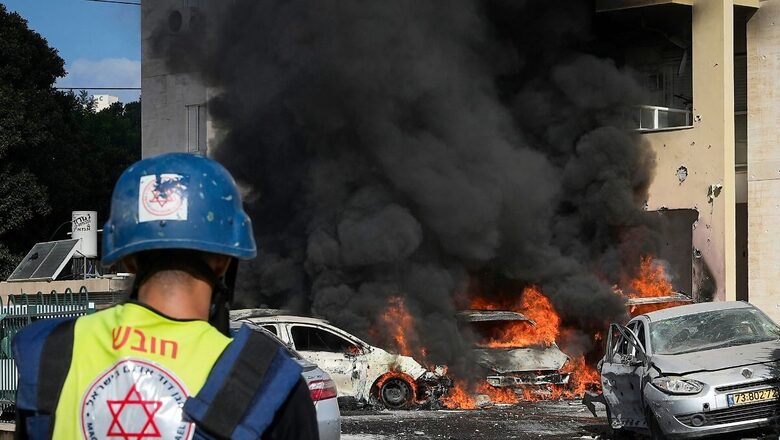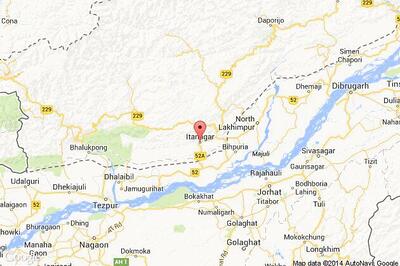
views
Russia, China and Iran have played a major role in the massive attack on Israel by the Palestinian group Hamas on Saturday, according to the assessment by intelligence agencies. The assessment states that while Iran provides open training and political backing to Hamas, Russia is known for its proximity to Hamas, and the Chinese technology was key to the attack.
The Islamist group entered Israel by land, sea and air on a major Jewish holiday – a Sabbath and the Jewish holiday of Sukkot – 50 years and a day after the Yom Kippur War of 1973, which too had taken the country by surprise. Yom Kippur is the holiest day of the Jewish calendar.
Saturday’s attack began with a barrage of more than 2,000 rockets fired into Israel. Under the cover of the rockets, a large-scale, carefully coordinated, ground operation set out from Gaza and attacked more than 20 Israeli towns and army bases adjacent to the strip. Israeli losses, estimated presently at more than 250 dead and as many as 1,500 wounded, are certain to increase in the coming hours and days.
TURKEY PROVIDED EXPLOSIVES TO HAMAS A FEW WEEKS AGO
There were reports that Turkey provided explosives to Hamas only a few weeks ago. While Israel intercepted it, no one spoke about it. Moreover, Turkish President Recep Tayyip Erdoğan even had a hush-hush visit to the United States (US), which wasn’t spoken about, according to the assessment by intelligence agencies.
“It’s a combination of different failures. Global partners, especially Five Eyes, not even once warned Israel of the attack," sources in the agencies said. “Some European countries have cooperation with some Arab countries. The UK, Canada, Jordan, Egypt, Bahrain all failed Israel."
INTEL FAILURE, BREACH OF BORDERS, CYBER SECURITY BREACH
The major question emerging is how Israel’s allies failed to provide intelligence. Given that Israel’s intelligence agency Mossad has agents everywhere, accumulation of thousands of rockets is impossible, sources said.
Another factor, according to sources, is the breach of borders. A Chinese Trojan was used to fail every system so they could enter from all four ways.
There have been repeated cyber security breaches in Israel, with the recent one leaving everyone shocked.
THE MOTIVE
Hamas’ strategic calculations in launching the attack are uncertain at this stage. However, the assured severity of Israel’s retaliation against the group – and as a consequence, the civilian population in Gaza – makes it likely that considerations beyond just tit-for-tat revenge were at play.
Kidnapping Israelis for prisoner swaps with Hamas militants jailed in Israel, for instance, has been among the most highly desired objectives of the group’s military operations in the past. In 2011, a single Israel soldier, Gilad Shalit, who had been held captive in Gaza since 2006, was exchanged for more than 1,000 Palestinian prisoners. Among these prisoners was Yahya Sinwar, Hamas’ current leader in Gaza, who had served 22 years in an Israeli jail.
The reports of dozens of Israelis being taken captive in this weekend’s assault – many of them civilians – suggest this may have been a central motive behind the attack. An unknown number of hostages held for hours by Hamas militants in two Israeli southern towns were later freed by Israeli special forces.
Another broader objective for Hamas may have been to undermine the ongoing negotiations between the US and Saudi Arabia on an agreement to normalise relations between the kingdom and Israel. Thwarting these talks would be a significant boon for Iran, a key backer of Hamas, and its allies. While Tehran has said it supports the attacks by Hamas against Israel, it remains uncertain at this point whether Iran or Hezbollah — the militant group in Lebanon that has a growing partnership with Hamas — would open additional fronts against Israel in the coming days.
With agency inputs


















Comments
0 comment